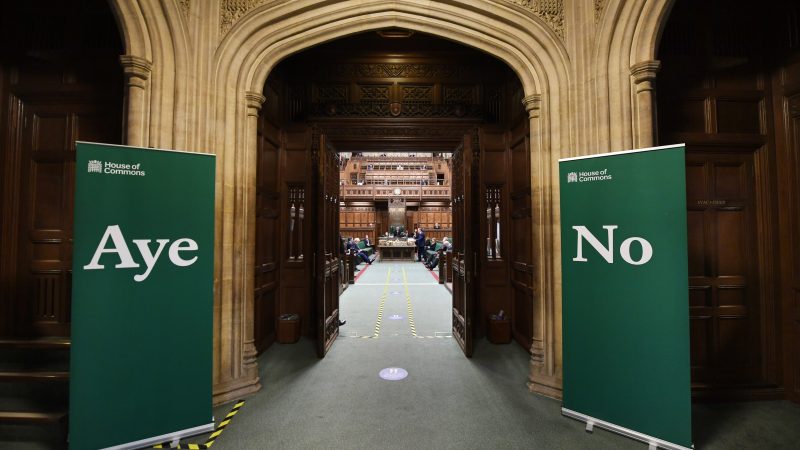
A Labour motion calling on the government to “protect the right of communities to object to individual planning applications” in its proposed planning system reforms has been passed by 231 votes to none as Tory MPs abstained.
Opening the opposition day debate for Labour this evening, Steve Reed told the Commons that, while there are problems with the current process, “the answer cannot be to carve local communities out of a say over their own neighbourhood”.
The Shadow Communities and Local Government Secretary described the plans put forward by the government last year as a “developers’ charter that silences local communities so that developers can exploit local communities for profit”.
“Under the government proposals, residents will be gagged from speaking out while developers will be set loose to bulldoze and concrete over local neighbourhoods pretty much at will,” he told MPs this evening.
“Since the current Prime Minister took office, donations to the Conservative Party from major developers have increased by nearly 400% according to analysis by openDemocracy. That money was an investment in expectation of a return, and here it is. The Prime Minister is paying back developers by selling out communities.”
The proposed planning system outlined in the white paper published by the government last year would see areas being designated within local plans into three different zones: protected; renewal or growth.
Protected zones will include areas defined nationally, such as green belt land, and others designated locally on the basis of national policy, with development allowed within restrictions to be set out by the national planning policy framework.
Renewal zones are to cover existing built areas where smaller scale developments are deemed to be appropriate. Development would be enabled through a mixture of permitted development and ‘permission in principle’.
Growth zones will be those seen as “suitable for substantial development”. Outline planning permission would be automatically given to developers with details agreed by officials, cutting out public objections.
“Regeneration works best in everyone’s interests when it is a strong partnership between councils, communities and developers,” Reed said. “That’s how we get new homes built where people need them. The best developers know that too.”
He argued that the problem with planning is not passing enough applications, but getting developers to start building, citing figures showing that 1.1 million homes that received consent in the past decade have still not been built. “That’s over half of all homes that were approved by council planning departments,” he added.
The Shadow Communities and Local Government Secretary said “we need new measures that incentivise developers to get these shovel-ready homes built more quickly” and committed the party to introducing new legislation to do so.
Appealing to Conservative backbenchers to back Labour this evening, he described the motion as a “modest proposal” to asking ministers to “guarantee that residents will retain the right to a hearing over individual developments”.
Reed also attributed the Lib Dem victory in the recent Chesham and Amersham by-election, a seat held by the Tories since its creation in 1974, to residents’ unhappiness with the planning reforms proposed by the Conservatives.
“They felt the first blasts of that whirlwind in Chesham and Amersham but it won’t finish there, because it’s fair to say the Conservatives’ planning reforms are not popular with voters,” he said.
“And that’s not because voters are ‘nimbies’, as ministers rather offensively like to brand them, but because residents rightly want and deserve a say over how their own neighbourhoods are developed.”
The opposition day motion this evening came amid growing pressure on ministers from Tory backbenchers over the proposed reforms, following the defeat to the Lib Dems. Opposition day motions are not binding on the government.
Boris Johnson has been instructing his MPs to abstain on the motions put forward by the opposition, a policy which his predecessor Theresa May pursued, despite having an 80-strong majority in the Commons.
Labour’s attacks on the reforms as a move by the Conservatives to “sell off and sell out our communities” have been criticised as appealing to nimbyism and have raised concerns over the party’s own plans for housebuilding.
Below is the full text of the motion tabled by Labour.
That this House believes planning works best when developers and the local community work together to shape local areas and deliver necessary new homes; and therefore calls on the government to protect the right of communities to object to individual planning applications.




More from LabourList
‘Tackling poverty should be the legacy of Keir Starmer’s government’
‘The High Court judgment brings more uncertainty for the trans community’
‘There are good and bad businesses. Labour needs to be able to explain the difference’